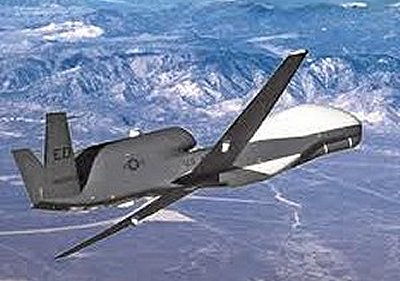
OBAMA’S COVERT WARS
The use of drones is going to change warfare out of all recognition in the next decades.
A conversation around its moral and legal limits is called for urgently
The adage ‘Only Nixon can go to China’ implies that hard-line Republican Presidents have the credibility to make peace with America’s enemies which others lack. There is an emerging corollary with Nobel Peace Prize winner President Obama launching hostile actions in several countries the United States isn’t even at war with, like Pakistan, Yemen and Somalia. Obama has received nothing like the global criticism George W. Bush endured for his wars. The difference, it seems, is the light footprint.
Emerging technology is altering the course of modern warfare and Obama’s presidency is the first to make widespread use of drones to target America’s enemies with precision and detachment. The number of drone strikes in northern Pakistan has multiplied exponentially and the Pentagon attributes the decimation of al-Qaeda to this facility. Compared to the old fashioned invasion of Iraq, which cost shatteringly large sums of money and put US troops into perilous positions for years, this form of warfare is more amenable to a debt-ridden and war-weary superpower. How much easier it is to conduct warfare from a console in Maryland than in the middle of the night in downtown Baghdad.
As yet, the US has been reluctant to say much publicly about their use of drone technology, but this cannot last. Claims from peaceable Pakistanis living in Waziristan that they are afraid to pray or meet in public places for fear of a misplaced missile are credible. The US makes a fair claim of its own that the new warfare has the capacity to limit civilian casualties in a way the blind release of bombs from B-52s flying at 40,000 feet could never achieve. It is hard to imagine a day when civilians cease to die in war, no matter how sophisticated the technology, and so a legitimate public debate should ensue.
Political leaders still feel the need to justify the recourse to armed conflict in terms of the classical theories of just war, which find many of their roots in historic Christian thinking. On this basis, drone warfare produces mixed results. In its favour, the need for proper authority is met. It seems the President signs off personally on some of the strikes on specific militants, though this has caused disquiet among some senior US officials for the way it binds the President too closely to operational choices. This may be a serious ethical challenge to future Presidents. It can be argued that the just war criteria of a proportionate use of means, an intention to avoid harm to non-combatants and a reasonable chance of success are more likely to be met by drone technology than any other form of warfare.
Questions undoubtedly emerge around concept of just cause and last resort. The principle that armed conflict should only be entered into as a last resort is at serious risk of erosion by a form of warfare with such light risk to those conducting it. The temptation is for drone warfare to become a first resort, as a way of preserving security. This should be mitigated by the principle of just cause: that war should only be prosecuted as a means of self-defence. The prism through which our generation has customarily interpreted this is the Second World War, but the 9/11 wars have changed all this. Although the rhetoric of the war on terror has evaporated, it leaves a damp smell around political debate. How do we interpret self-defence in relation to militants living thousands of miles away in countries we are not at war with and who do not have any immediate capacity to disrupt our peace? After 9/11, the impulse for the US in particular to err on the side of caution remains great; in the countries which are targeted, however, this is seen as recklessness.
For now, the US is peerless in its drone capacity but it will not remain so. This is a form of warfare which will endure and in due course, many nations will develop this capacity. What happens when they begin to use it to strike perceived enemies in other countries? We urgently need an honest and ethical debate around this new development in warfare. The US and its allies cannot avoid this for ever by denying covert operations; it is in everyone’s interests that a conversation is held around the moral and legal grounds for the use of drone technology. Only from this might international norms be developed which protect innocent people. The alternative is for a new and unrestricted arms race to erupt before we have properly addressed the legacy of the twentieth century arms race which continues to haunt our common life.
POPULAR ARTICLES

Obama's Covert Wars
The use of drones is going to change warfare out of all recognition in the next decades.

Through A Glass Starkly
Images of traumatic incidents caught on mobile phone can be put to remarkable effect.

What Are British Values?
Is there a British identity and if so, what has shaped the values and institutions that form it?


